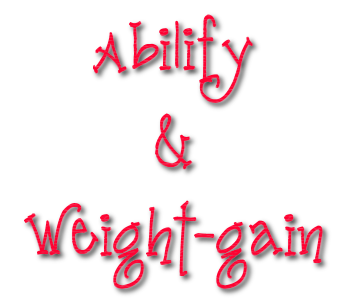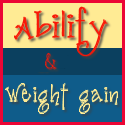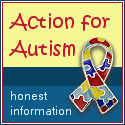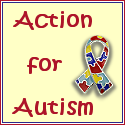We've had a very long meeting today about the workload we're experiencing at the moment.
Many people suffer the effects of the cutbacks on sevices for autistic children.
We've spoken about the DSM V plans to move Asperger syndrome within the complete autism spectrum. In some countries people are afraid they won't get special aid anymore, whereas in other countries people welcome the change because aid comes available.
We've talked through all what we needed to discuss about the new site.
And we rearranged tasks.
Most important was the introduction of a triage system for emails and other mail.
The changes also require a different approach to volunteers within the organisation.
We decided we need someone who looks into the volunteer costs. In some countries volunteers get nothing and in other countries it's possible to pay them back their costs. We don't have sponsors, do we need them, want them?
In the closing round we discussed some online issues.
It was absolutely clear for scientists that vaccines don't cause autism.
Simply because the rise of autism in countries where no vaccines are given to children mimicks the rise of autism in countries where vaccines are given, when careful, standardised diagnoses are made.
The whole way Wakefield and his team conducted the research was not up to the quality (and quantity) standards of proper research.
And... which is as important... the results couldn't be replicated.
It was interesting to see over the years that in countries where medical opinions are by law the privilege of people who are qualified to make medical judgements, people didn't belief in a relationship between vaccines and autism.
And in countries where everyone can spread his or her opinion about everything without having to take responsibility rumours were soon labeled "the truth", and people who knew how to play the media were called "experts".
I bet many of those "experts" earned a nice amount of money with appearing on TV and selling stories and alternative therapies.
By the way they targetted me when I spoke out against a link between vaccines and autism from the first moment on after I saw Wakefield's research, I knew that a lot more than believing the wrong prophet was at stake.
The way that for instance Jenny McCarty waved even the undisputable statements of The Lancet away was a clear illustration of how people can stick to their wrong assumptions.
And it's a pity that people just follow her blindly, instead of questioning themselves why on earth they hand themselves and their opinions over to someone who is in confict with doctors and scientists all the time.
Persistence is an honorable characteristic, but knowing when to change your mind and opinion in the light of overpowering evidence is at least as honorable.
But maybe I'm just lucky to have seen the signs and signals of autism in my 4 boys way before their vaccinations.
And maybe I'm lucky to accept that we don't know everything, and that nature is a strong force and we know just only part of what it does and how it works.
Science began with simple questions: why does something happen, how does it happen?
And from these simple questions people struggled to create a system to draw conclusions and to describe how reliable they are.
They used a lot of common sense in that they wanted to be able to get the same results when the same methods to find them were used.
Every day experience taught that when something occured once it wasn't a guarantee it would happen again, and that when events occured in a certain order that didn't mean the first event caused the second.
So they tried to control events to see what happened.
Research isn't a backyard game for those who like to see what they want.
Research is subject to lots of rules and requirements which have emerged in a long process.
This guarantees carefullness and limits the amount of mistakes, but it also limits the rate of development.
And all the time scientists have to describe what they do, because others should be able to get the same results under the same conditions.
Science doesn't create make-belief, but it does describe and recreate reality in such a way that others will be able to get the same results and won't see what's not there.
I know there are parents who keep saying that vaccines caused autism in their child.
They subject their (other) children to preventable health risk by not vaccinating.
Their children will call them to responsibility later in life.
But why would they stick to drawing conclusions from two events that took place in the life of their children?
Is it to flee from the rotten feeling that maybe genetics plays a role and that we, moms, conceived without knowing we would cause autism in our children?
Is it to forget what we ate, because maybe a cause will be in our food?
Or is it to push away the chilling fear that we might have seen the signs and signals of autism in our children earlier, so our child would have has better support?
It's for all of us as individual persons to answer to the questions life poses.
One of the main questions is: do we have enough knowledge to draw certain conclusions and do we want to take responsibility for what we tell others?
And do we have the guts to change our minds when we need to?
At least and at last the Lancet took action.
It should have happened a lot earlier.
We need your help to bring a very pressing problem straight into the limelight in such a way that no-one can deny the problem.
Lots of autistic children are prescribed medication which helps them in a way, but which also causes uncontrollable weight gain up to a pound per week.

I need to hear from parents whose autistic child is using abilify.
Help me find them.
Please display this banner on your site to reach out.
Parents can contact me by using the contact button at the top of this site.
Please use: "Abilify and weight" in the subjectline so I'll catch your mail at once.
May we all be able to deal with the challenges autism poses.
Our conversation in the national autism centre is, as planned, interrupted by a young woman who takes our son on a tour at the location.
The calm conversation changes when the oldest lady moves, with an unexpected short bust of energy, her body towards us.
With a sense of amazement I see her face changing and hear her voice getting sharper.
It's the father she targets after a fast look at me.
"We know autisme is genetic. Do you have any idea where it comes from?"
It's more a frontal attack than asking questions to complete a family profile or stating a fact.
The lack of accent on "we" creates the idea that the question is often used the same way.
"You" in my language has a polite form and it's used without the normal emphasis, downgrading it to neutral, bland, word and at the same time taking away any personal meaning.
But we're in the national autism centre, zo I assume they know how to relate to other people.
Without taking a breath before speaking, with visible amazement, the father mentions his brother and, after a short look at her face, himself.
The acknowledgement is almost tactible.
Clearly uneasy he ads: "That's why my wife has to take care of almost everything in our family."
A fast look at me should be the signal to the woman to stop interrogating him.
The bright rays of sun are unable to break the crisp uncomfortable feel in the room.
Just at the moment I think that it's time to take over the lead of the conversation the woman resumes: "It won't be easy with autistic sons".
Almost grateful for moving away from his achnowledgement he hastely ads: "No. It takes time to accept that, because every father wants his son to be normal."
It sounds like a closing sentence and is accepted as such.
The lady once more invests energy in a posture change, this time towards me.
Without changing anything in her facial expression she utters a sentence that should have sounded very understanding. "It's a difficult family. A heavy task for you."
It sounds like a far too many times repeated part of a bad theatre play and the complete lack of empathy, intended or not intended, stays with us when we go home.
There's more empathy in a written comment to a blogpost than at that moment in that small room in what should be the centre of autism knowledge and treatment.
Professionalism as a theatre piece, it seems.
The autumnleaves are waiting on the pavement for our feet to make them swirl through the sky.
The sharp wind is not stinging anymore, but feels fresh and authentic.
Ofcourse parents inform the school about the autism of their child.
It's the only way to realise the best support possible for their own child.
But it's a pity that in some school relevant information disappears in the files, which are often burried in a dark corner behind a closed door.
During meetings teachers are told about the child and the treatment plan/IEP, but my experience is that most teachers are willing to stick to the all the individual steps of the plans, but they tend to forget most of them during their busy days.
Some teachers even forget the child needs special care in- and outside the classroom, is my experience.
Ofcourse you can call for a new meeting with all people involved, but it costs a lot of time and some people don't like that at all.
So I began writing a leaflet for the teachers, mentioning the fact that autism is a neuro-biological disease.
After that I mentioned the special characteristics of my son, not forgetting that he has trouble reading faces, often forgets that he's put his homework in his bag and overlooks it, and that he needs a silent classroom to be able to take in relevant information.
The leaflet closes with advice to prevent problems,
like writing homework on the blackboard,
enabling him to leave the classroom first so he can walk alone to the next classroom without the crowds pushing him aside, etc etc.
At the back there was always a list of phonenumbers of people who were good in dealing with him, like his favorite teacher, the pedagogue and his brother in another group, and I'd put my email at a visible place so I could be reached for questions at all times.
Every year at the beginning of the schoolyear and after christmas all the teachers got a leaflet, and my son had one glued in his agenda.
No teacher was able to look me in the eyes and tell me he didn't know after that.
Worked well!
Dealing with autistic children changes parents and teachers.
They have to change, because it's important to take the abilities and disabilities of the autistic child into consideration.
One of the things I've learned as a parent is to examine my motives before I want my autistic children to do what I want.
What do I want to achieve?
Is it useful?
Useful for what or whom?
How do I want to achieve it?
Are there easier ways to achieve it?
Does my autistic child understand what I want?
Does he see the use of it?
etc etc.
I've learned patience, self reflection, understanding, and examining my own motives as well as those of others. And it taught me a lot about my child and autism.
Each child can be seen as a burden or as a rich source of change and inspiration.
I was shocked when I heard how some teachers were dealing with my children.
My children have been ignored, shouted at, humiliated, slapped and bullied by teachers.
I've never stopped telling them that teaching is not about pouring knowledge in and over a child, or using the child for owns own ego.
Like Maria Montessori said: the child should be the beginning, the child needs to develop itself and we are here to create the right circumstances and environment.
You don't belief that teachers are sometimes loosing it?
Here's an example:
The boy is a non-speaking autistic boy at Pittsburgh Public School.
The woman is his teacher.
The recording is made by the teacher's aid.
You can give your reaction, or your help here.






